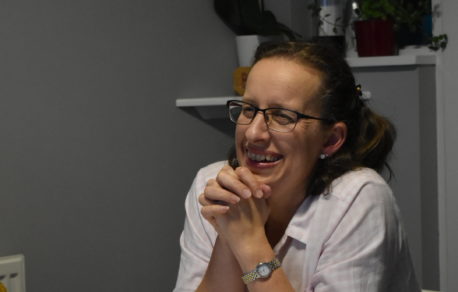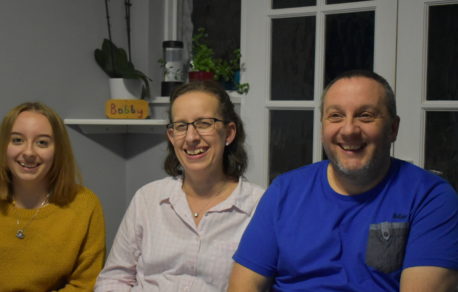
How to support someone living with dementia
Our community covers more than 140 countries worldwide. So in World Alzheimer’s month, I have been thinking about the Dementia friends training the team and the members of our Service Development Committee did last year.
Much of our work is done by email or phone. This means we don’t have the same day to day interactions with our community as some organisations. Even so, we felt that it was important to learn more about the wider effects of dementia on the individual and their families within our community. We all found it a really positive experience.
Reality of dementia
Reflecting on the training has made me think about a lovely couple I met many years ago when I was working as a nurse. Husband Fred was already showing early signs of dementia and his wife Doris had end-stage breast cancer. As Doris became more unwell, Fred temporarily moved into a care home. He then used to visit her in the ward once or twice a day.
A couple of months after Doris died, her daughter told us that Fred’s dementia had become worse and he was now a permanent resident in the care home. Then Fred began to come to the ward asking to see Doris. We hadn’t had much experience of supporting people with dementia then. The advice at the time was to bring them back to focus on reality. So we gently told Fred each time that Doris had died and stayed with him as he grieved all over again.
That was thirty years ago, and the memory of Fred’s distress has stuck with me ever since. The Dementia Friends training helped us understand that there’s no “one size fits all” answer to a situation like this. And it made me realise that I could have really used the information from organisations like the Alzheimer’s Society back then. Now, because of the training, awareness and the resources available, I believe we would feel better equipped to support someone like Fred in this situation.
Supporting our community
Although we will always refer our community to experts in the area, like the Dementia Connect Support Line, Foothold also offer support. We can fund respite breaks for either the person with dementia or their carer. We can also fund equipment to make daily living easier or enable you to continue with your hobbies safely. And if money is tight, financial support packages are available to help you get back in control.
Dementia during the pandemic
The last six months have been particularly difficult for people living with dementia. There has been concern about people’s health as people with dementia are more likely to experience severe symptoms. This could be because of age, other underlying health conditions or due to the dementia itself. The distress caused by enforced changes in routine or unexpected isolation has been really unsettling too.
Many of the Foothold team have friends or neighbours who are living with dementia. This means some of the basic communication skills we learned about in training have been invaluable. These include speaking calmly and clearly, thinking about the tone of your voice and using gestures to reinforce your words.
If you’re caring for someone…
As well as community members living with dementia, we’re also thinking of their families and friends. Those who may have been in isolation with them or trying to support them from a distance. At Foothold we are really keen to support you as a carer and have a quarterly newsletter focussed on your needs.
Caring for someone with dementia brings many challenges. Foothold is here to support you with a listening ear from one of our Friendship team or through a grant for more formal counselling support. We could also fund year’s membership of Anxiety UK. This will cover a wellbeing assessment and the costs of counselling and any resources you might find helpful.
Being a dementia friend
So, was the time taken to do our Dementia friends training worth it? I think so, and parts of it pop up in the most unusual places. I was watching Nadiya Bakes on BBC 1 last week. Nadiya’s guest Julie Jones was talking about baking with her Mum, who had dementia, and how much the activity helped maintain their connection. She showed some photos from their baking sessions – lots of smiles and happiness in the moment.
I was reminded that although a person with dementia may not remember the details of an outing or activity for long, the feelings of being warm and loved remain for longer than the memories of the event. This happens because memory and emotions are held within different areas of the brain. You can read more about Julie here.
Through the Dementia friends training I certainly now have a greater understanding of the challenges that living with dementia brings and how we can best support our community going forward. Why don’t you give it a try?


